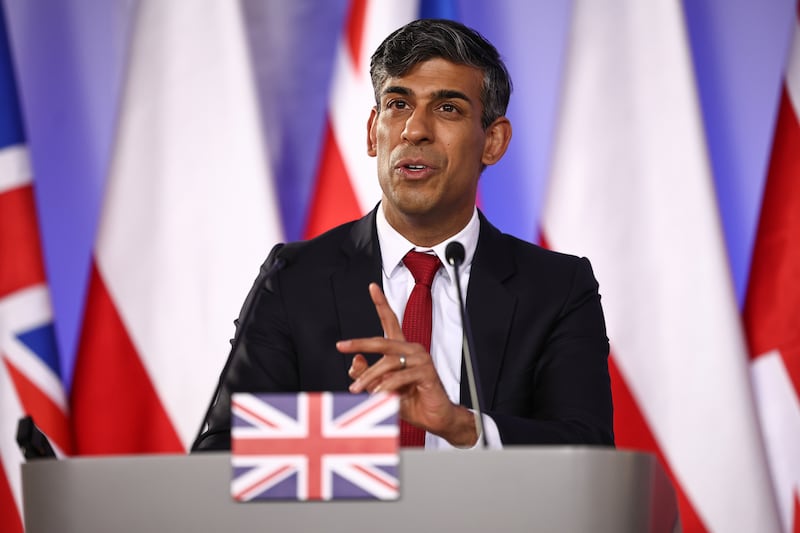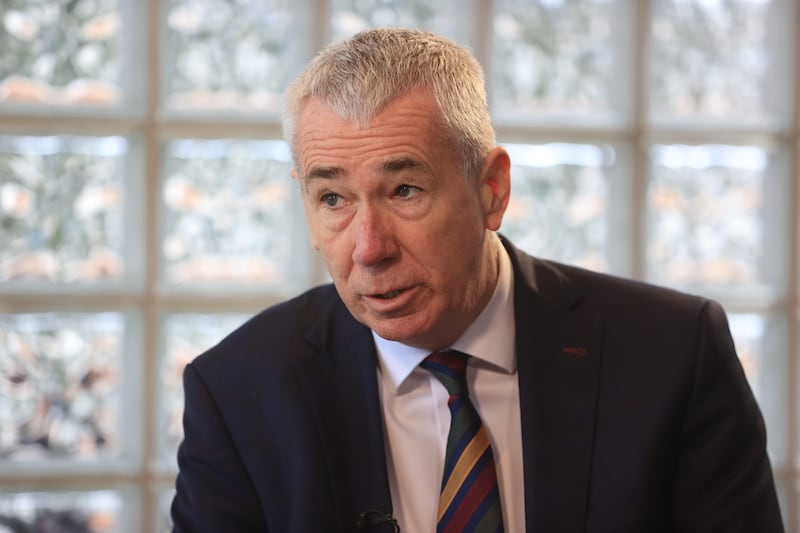Doubts have been cast over the British government's commitment to change key legislation in order to reassure unionists their constitutional position in the UK is secure.
Days after the Windsor Framework deal was announced, the secretary of state said he planned to bring forward amendments to the 1998 Northern Ireland Act.
"Reassurances in law that Northern Ireland remains an integral part of the United Kingdom and it is the government saying that in primary legislation which is what people are asking for," he said.
His proposal sparked an angry response from nationalists, who accused the secretary of state of attempting to unilaterally alter the legislation that stemmed from the Good Friday Agreement.
It was speculated that Mr Heaton-Harris planned to amend elements of the Northern Ireland Act relating to the principle of consent, in what was seen as a concession to the DUP.
However, while the British government subsequently legislated for the statutory instrument relating to the Stormont Brake, there has been no indication of any further moves, as previously outlined by Mr Heaton-Harris.
One senior source told The Irish News that Downing Street was angered when DUP MPs voted last month against the Stormont Brake, a mechanism designed in consultation with the party that was meant to assuage concerns about future EU-UK divergence.
The Irish government, meanwhile, is understood to have raised concerns about any unilateral amendments to the Northern Ireland Act.
When asked about plans to legislate, a statement from the Northern Ireland Office appeared to indicate that there was nothing further forthcoming.
"The Windsor Framework provides constitutional and democratic guarantees for the people of Northern Ireland," the statement said.
"This has been demonstrated by the delivery of legislation on the Stormont Brake, as part of Northern Ireland Act 1998, which provides an important democratic safeguard."
But East Belfast MLA David Brooks said that while the Windsor Framework "undoubtedly represented significant progress", it failed to "deal with some of the fundamental problems at the heart of our current difficulties".
"There is no solid basis for an executive and assembly until we have arrangements that restore Northern Ireland’s place in the UK internal market and our constitutional arrangements are respected," he said.

Sinn Féin MP John Finucane said the deal between Brussels and London was "done and the negotiations are over".
"We now have a huge competitive economic advantage to trade in the world’s biggest economic markets – we need to seize that opportunity to create good jobs, attract investment and strengthen our economy," he said.

SDLP leader Colum Eastwood said: "The message to the British government needs to be really clear, especially while we’re marking 25 years of the Good Friday Agreement - the principle of consent is the cornerstone of our new society, it allows everyone to pursue their legitimate constitutional aspirations and it cannot be messed about with.
"I hope they’ve heard that message loud and clear and that this is the end of any attempt to unilaterally undermine parts of the agreement."
A TUV spokesperson told The Irish News that domestic legislation would not alter the north's status "in a foreign single market and subject to a foreign customs code".
"Unionists should therefore be cautious about any party which seeks to claim victory by waving any legal change supposedly enacted by Westminster while the protocol remains in place," the spokesperson said.
“That said, the comments by the NIO suggest that they are currently not minded to even play that game, underscoring the reality that unionist resolve must not weaken in order to show that we are serious about our demand to regain our position as full and equal citizens of the United Kingdom."






